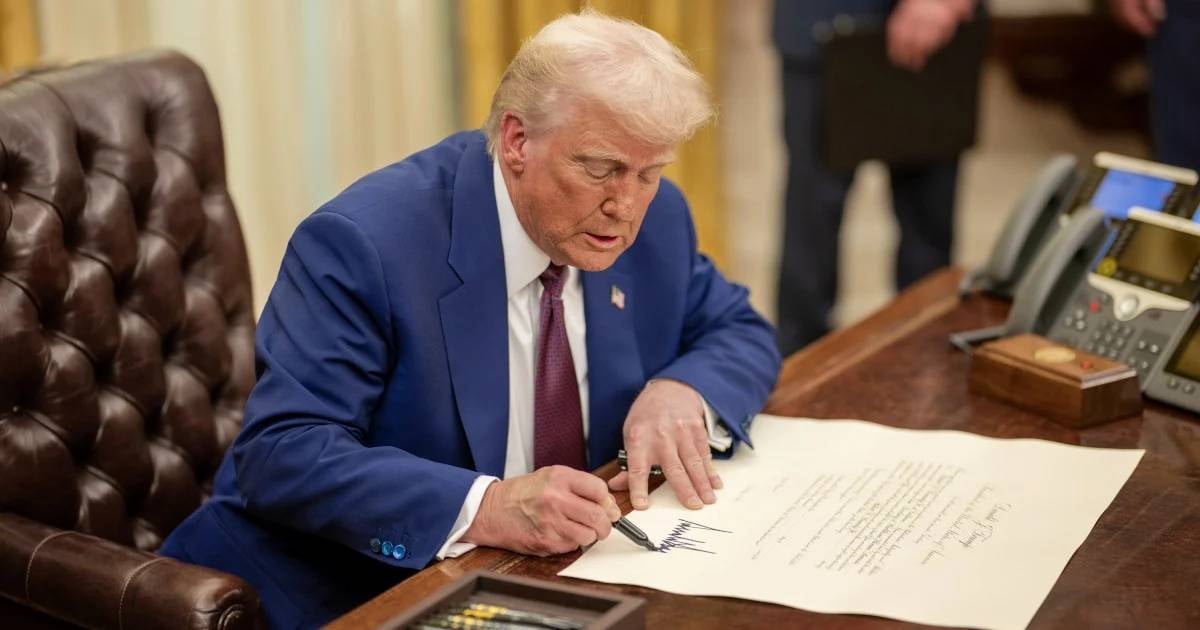President Donald Trump is gearing up to reveal a new, more aggressive set of trade tariffs this Wednesday, April 2, potentially including a sweeping 20% customs tax on all imports to the United States, as reported by The Wall Street Journal. This move represents a significant shift from his initial proposals, which focused on countries with trade surpluses, and it is likely to increase global economic uncertainty. Discussions within his team have intensified recently to finalize the scope and exact structure of these tariffs.
One of the primary debates is whether to impose a blanket tariff on all trading partners or to target a list of countries with the largest trade surpluses against the U.S., whom Trump has referred to as the "dirty 15."
A "Big and Simple" Move for "Liberation Day"
The chosen date for the announcement, dubbed "Liberation Day" by Trump, underscores the symbolic significance he aims to attach to this new chapter in his trade policy. An official cited by The Wall Street Journal stated that Trump is seeking to introduce something "big and simple," aligning with his narrative of rebuilding the American industrial sector.
Implementing a 20% tariff on all imports would diverge from the strategy suggested by Treasury Secretary Scott Bessent, who has advocated for a more targeted approach against countries with significant trade advantages over the U.S., according to EFE.
In the last week of March, Trump imposed a 25% tariff on all automobiles manufactured outside the country, which he described as a historic measure to protect the domestic auto industry and reduce reliance on imports.
Market Jitters from Mixed Signals
While Trump has promised to be "more generous" with nations he considers allies, he has also urged his team to adopt a tougher and broader stance. This has led to mixed signals that have begun to affect global financial markets. Asian and European stock markets opened this Monday with widespread declines, and major Wall Street indices like Nasdaq and the S&P 500 also started the day in the red, reflecting concerns over a potential expanded trade war.
Moreover, major U.S. airlines and hotel chains are among the first to feel the impact of the economic and immigration policies of Trump's new administration. The imposition of new tariffs, uncertainty over international trade, and stricter border controls are leading to a drop in travel demand and a significant hit to the tourism sector.
Global Impact of a Potentially Uniform 20% Tariff
If a uniform 20% tariff on all imports is enacted, the repercussions would be global and profound, affecting everything from consumer goods to raw materials, and impacting key industries such as automotive, technology, and agribusiness. Additionally, this measure could provoke trade retaliations from other countries, further jeopardizing the stability of international supply chains in an already sensitive context due to geopolitical conflicts and global economic slowdown.
On Tuesday, Trump will receive a detailed report on the primary trading partners of the U.S., which is expected to form the basis for the final decision to be announced on Wednesday.
Understanding Trump's New Tariff Policies
What is the potential impact of a 20% tariff on all imports to the U.S.?
A 20% tariff on all imports could have profound global impacts, affecting consumer goods, raw materials, and key industries like automotive, technology, and agribusiness. It may also lead to trade retaliations from other countries, destabilizing international supply chains.
How are financial markets reacting to the potential new tariffs?
Financial markets are showing signs of concern, with Asian and European markets experiencing declines and major U.S. indices like Nasdaq and the S&P 500 opening in the red, indicating apprehension over a possible expanded trade war.
What industries in the U.S. might be affected by Trump's tariff policies?
Industries such as automotive, technology, and agribusiness could be significantly affected by the new tariffs, in addition to sectors reliant on international travel and tourism due to decreased travel demand and stricter border controls.
